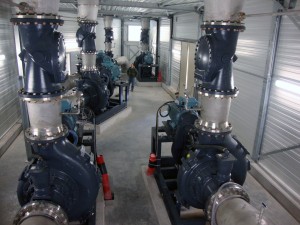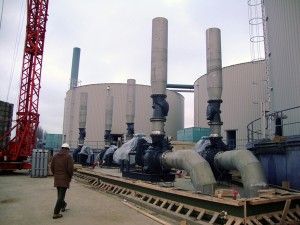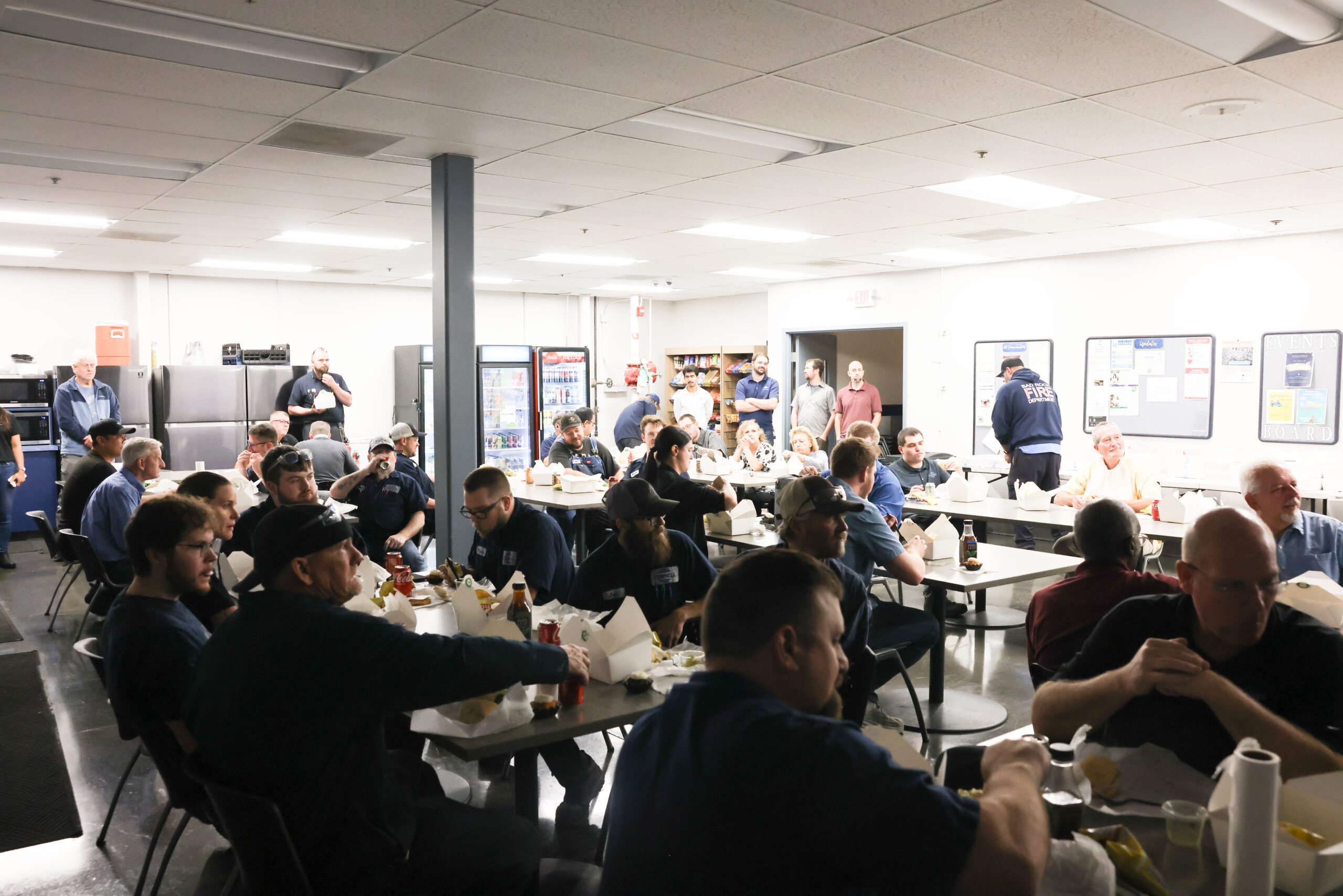![]() Two major waste water treatment plants in Brussels faced issues with sludge circulation in the decanting basins; use of the previously installed pumps was creating too much foam, leading to sludge particles floating near and on top of the water’s surface. Because the sludge was not settling down into the basins as expected, the extraction process was not as effective as designed, and the pumps were using more energy than anticipated to operate.
Two major waste water treatment plants in Brussels faced issues with sludge circulation in the decanting basins; use of the previously installed pumps was creating too much foam, leading to sludge particles floating near and on top of the water’s surface. Because the sludge was not settling down into the basins as expected, the extraction process was not as effective as designed, and the pumps were using more energy than anticipated to operate.
 The plants manager wanted a change to efficiency; that desire led to a change in extraction strategy. To alleviate the problem of the excessive foam, it was decided to pump sludge from lower tanks to higher tanks with Cornell Self-Priming pumps. These innovative Cornell pumps helped remove the excess air from the sludge before it was pumped into the upper tanks and comes into contact with the surface mixers.
The plants manager wanted a change to efficiency; that desire led to a change in extraction strategy. To alleviate the problem of the excessive foam, it was decided to pump sludge from lower tanks to higher tanks with Cornell Self-Priming pumps. These innovative Cornell pumps helped remove the excess air from the sludge before it was pumped into the upper tanks and comes into contact with the surface mixers.
Cornell’s self-priming pumps aided in the removal of air bubbles that were trapped in the water. At certain times observers could hear the vacuum pumps extracting the air that had already been separated from the water by turbulence. Under those conditions, pumps without self-priming capabilities would lose their prime because of the excess air. In the previous pumps that had been an issue; an issue that was solved beautifully by using Cornell self-priming pumps.
 The installed Cornell pumps have two functions at the plant: initial priming at start-up and extracting the excess air during the pumping process. These pumps are driven by 90kW electric motors and are controlled by variable frequency drives that operate between 400 RPM and 600 RPM at the pump shaft. The maximum hydraulic efficiency of the pumps is 87.3%!
The installed Cornell pumps have two functions at the plant: initial priming at start-up and extracting the excess air during the pumping process. These pumps are driven by 90kW electric motors and are controlled by variable frequency drives that operate between 400 RPM and 600 RPM at the pump shaft. The maximum hydraulic efficiency of the pumps is 87.3%!
Six Cornell 18NHFL pumps have been working effectively at the Brussels plants since February 2011.



